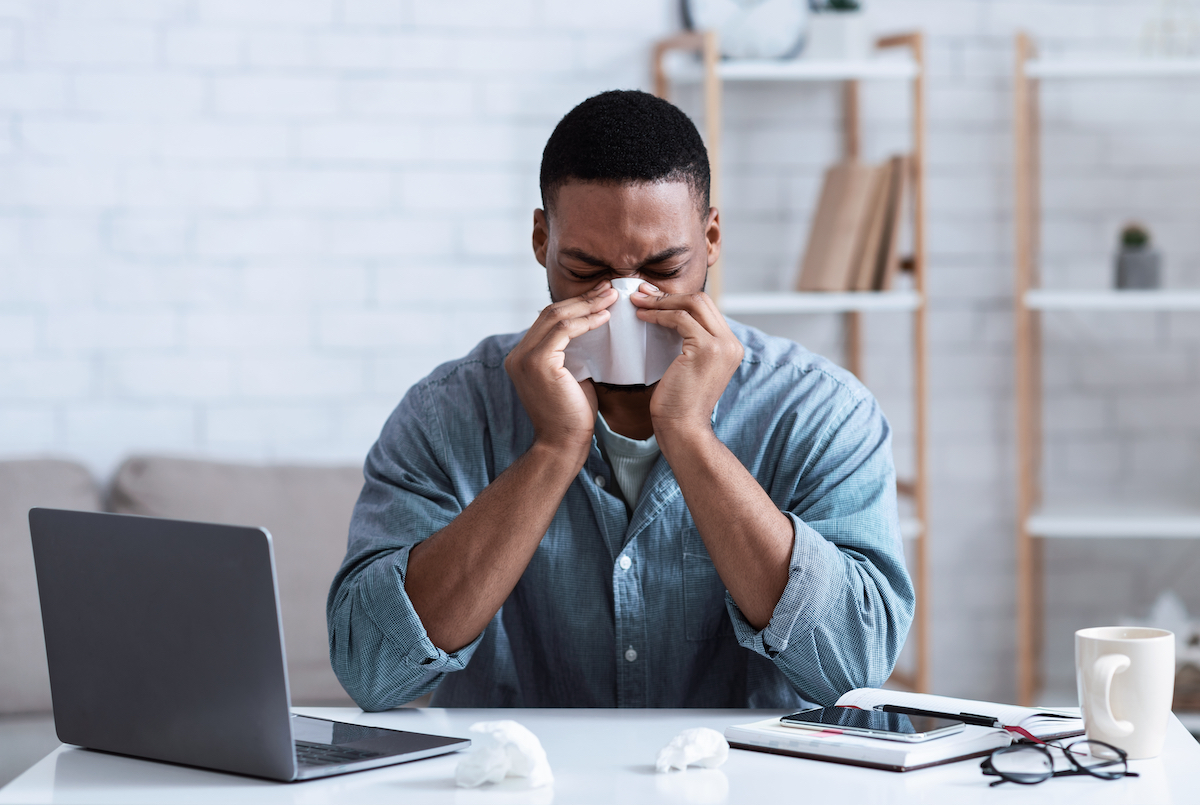
Slightly longer days, sunnier skies, blooming flowers – there is a lot to love about spring. Seasonal allergies don’t make the list.
Internal medicine specialist Dr. Marianne Carim sees patients every day at Tryon Medical Partners’ Uptown location to guide them through their worst seasonal allergy symptoms. She provides some key information around seasonal allergies; everything from when we can expect allergy season to how we can beat the spring sniffles.
The allergy season is longer than you might think.
Dr. Carim says it’s common for patients to come in to see her with symptoms like sinus congestion, sneezing or runny nose, thinking they have a cold and not realizing it may be seasonal allergies. In Charlotte, trees bloom earlier than they do in other parts of the country so spring allergies can begin as early as February, especially among those who are most sensitive to tree pollen. Spring allergies tend to peak mid-March to early April and last until early summer. Fall allergies typically start in mid to late August, peak in September and finish by late November.
“Allergy season can vary to some extent from year to year,” Dr. Carim says. “This year, we barely got a winter and trees started blooming earlier than expected for the Charlotte area. Therefore, patients started experiencing allergy symptoms sooner as well.”
It’s best to start taking allergy medication before experiencing significant symptoms.
There are a variety of treatments for seasonal allergies. These include:
- Oral antihistamines. Antihistamines can help relieve sneezing, itching, a stuffy or runny nose and watery eyes. Antihistamines can also be compounded in a nasal spray.
- Corticosteroid nasal sprays. These improve nasal symptoms (stuffy or runny nose) and tend to be more effective than antihistamines.
- Cromolyn sodium nasal spray. These nasal sprays can mitigate allergy symptoms by blocking certain bodily reactions to allergens but are less commonly used.
- Oral decongestants. Oral decongestants can provide temporary relief from nasal symptoms like stuffiness, though they can raise blood pressure so they are not recommended for all patients.
“The key to effective seasonal allergy management is being on top of it ahead of time,” Dr. Carim shares. “As soon as you start to see trees bloom, even if it’s just blossoms, go ahead and start taking medication. If you wait until the height of your symptoms, it’s harder to slow them down.”
Small lifestyle changes can make a big difference.
“There are many ways outside of medication to improve your allergy season,” Dr. Carim points out. “Some simple changes at home can make a huge difference in day to day quality of life.”
Try to:
- Keep your windows closed: It’s the time of year when you want to feel the fresh spring breeze and enjoy the weather. However, it’s best to keep your home or car windows closed to reduce your exposure to pollen.
- Avoid pollen: If you should spend time outdoors, it’s best to shower and change your clothes after coming back home to rinse off the pollen. You can also choose to rinse your sinuses regularly. In addition, it’s best to know which pollen you are sensitive to and then check pollen counts. During spring and summer, levels are highest in the evening. In late summer and early fall, levels are highest in the morning.
- Keep your pets in mind: Your pet’s fur can also pick up pollen and bring it in the home. It’s best to avoid having them sleep with you in the bed or get too close to your face. In addition, regular bathing (if appropriate for your pet) would be beneficial as well.
If over-the-counter medication and behavior changes don’t improve your symptoms, it’s always best to see your doctor.
Schedule an appointment if you’re experiencing any of the following:
- Trouble breathing or chest tightness
- Cough keeping you up at night
- Persistent sore throat
- Significant sinus pressure or pain

